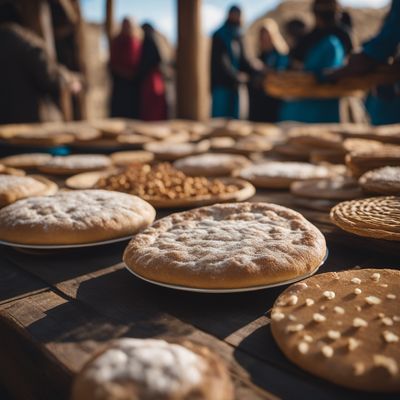
Cuisine
Sami cuisine
Sami cuisine is heavily influenced by the Sami people's nomadic lifestyle and the harsh climate of northern Scandinavia. Reindeer meat is a staple in many dishes, and is often served smoked or dried. Fish, berries, and wild herbs are also commonly used. Traditional dishes include bidos (a reindeer stew), suovas (smoked reindeer meat), and gahkku (a type of bread). Modern Sami cuisine has been influenced by international trends, but still emphasizes local and traditional ingredients.
Typical ingredients
Reindeer meat, Fish (salmon, trout), Berries (lingonberries, cloudberries), Wild herbs (thyme, juniper), Potatoes, Carrots
Presentation and garnishing
Sami cuisine is often presented in a simple and rustic manner, with an emphasis on natural flavors and textures. Garnishes are typically minimal, with fresh herbs or berries used sparingly.
Sami cuisine has gained international recognition in recent years, with several Sami restaurants receiving awards and recognition for their use of local and traditional ingredients.
More cuisines from this region...
Swedish cuisine, Norwegian cuisine, Icelandic cuisine, Finnish cuisine, Danish cuisine
History
Sami cuisine has a long history dating back thousands of years. The Sami people have lived in northern Scandinavia and Russia for centuries, and have developed a cuisine that is well-suited to the harsh climate and limited resources of the region. Sami cuisine has also been influenced by the cuisines of neighboring cultures, such as Finnish and Russian cuisine.
Cultural significance
Sami cuisine is an important part of the Sami people's cultural heritage. Traditional dishes are often served at festivals and other special occasions, and many families have their own recipes that have been passed down for generations. The use of local and traditional ingredients is also an important aspect of Sami cuisine.
Health benefits and considerations
Reindeer meat is a good source of protein and iron, but is also high in fat. Some traditional Sami dishes are also high in salt, so should be consumed in moderation.
Sami cuisine recipes Browse all »
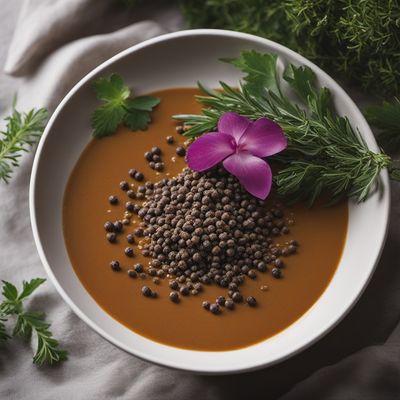
Sami-inspired Peppercorn Sauce
Arctic Peppercorn Delight
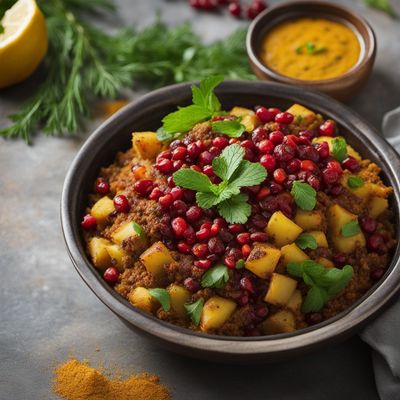
Sami-Inspired Arctic Chaat
Arctic Fusion: A Sami Twist on Indian Chaat
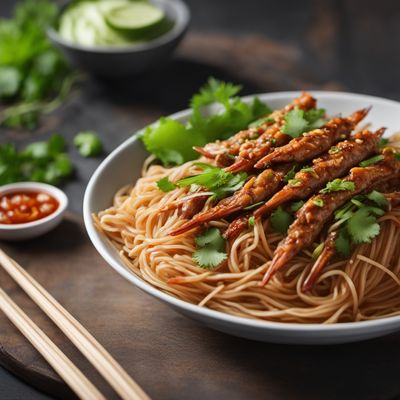
Sami-style Satay Bee Hoon
Savory Satay Noodles with a Sami Twist
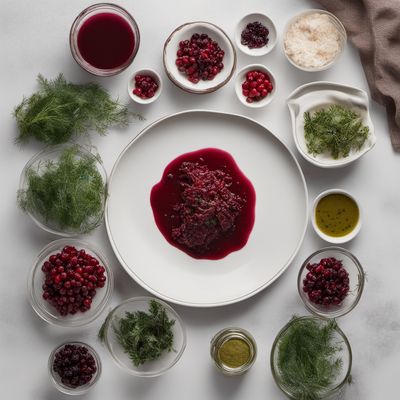
Sami-Inspired Reindeer Dressing
Arctic Delight: Reindeer Dressing with a Sami Twist
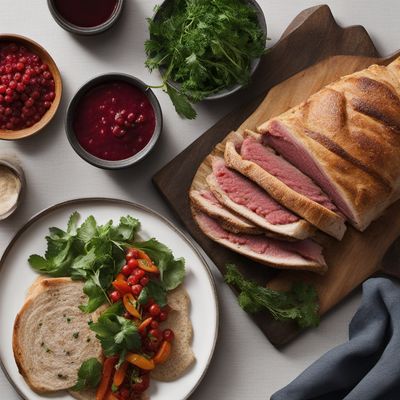
Sami-style Pork Bocadillo
Arctic Delight: Sami-inspired Pork Bocadillo
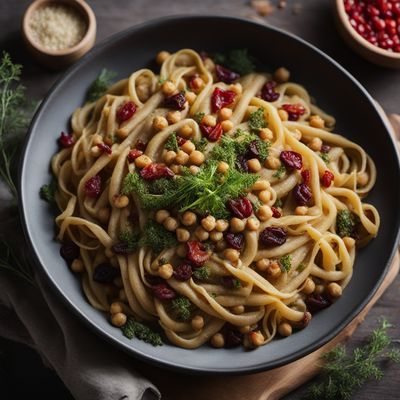
Sami-style Chickpeas and Pasta
Arctic Delight: Sami-inspired Chickpeas and Pasta
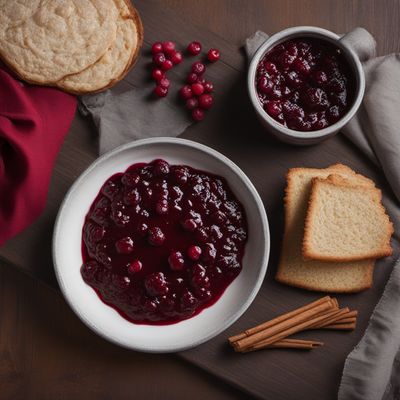
Traditional Sami Gáhkku with Lingonberry Jam
Arctic Delight: Lingonberry Gáhkku - A Taste of Sami Tradition
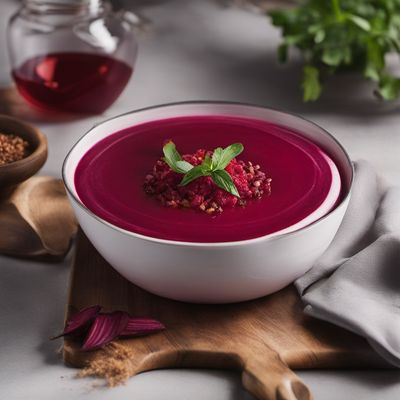
Sami-style Beetroot Salmorejo
Vibrant Beetroot Delight: A Sami Twist on Salmorejo

Sami-style Ikinari Dango
Savory Sami Delight: Ikinari Dango with a Northern Twist
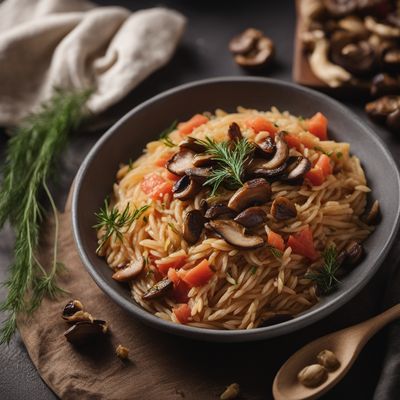
Sami-style Orzo Kažerma
Savory Sami Delight: Orzo Kažerma with a Northern Twist

Sami-style Smoked Fish with Bacon
Arctic Delight: Smoky Fish Wrapped in Bacon

Sami-Inspired Nutty Delight
Arctic Nutty Gajak: A Sami Twist on an Indian Classic
